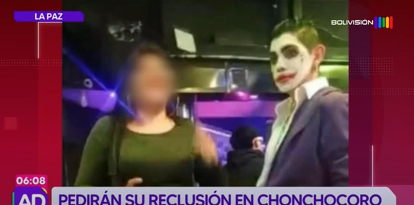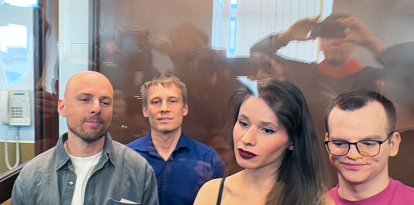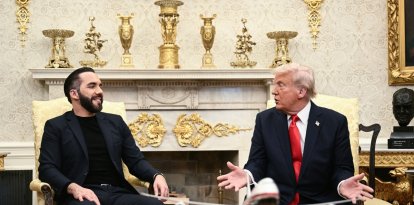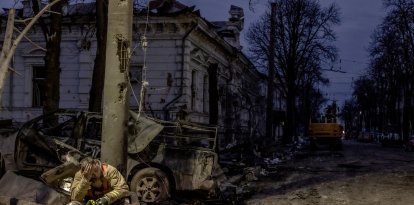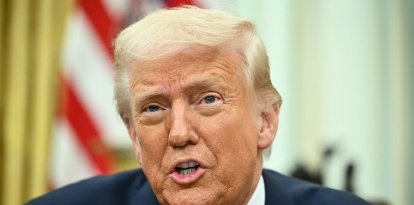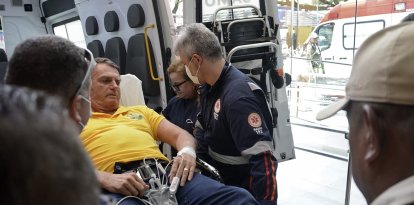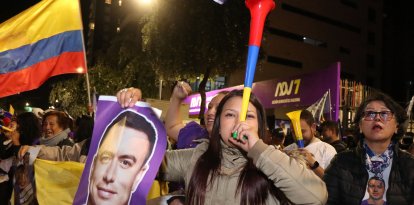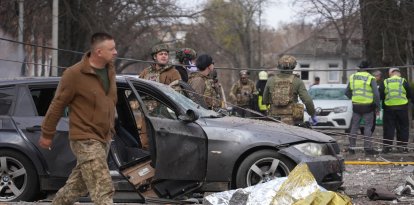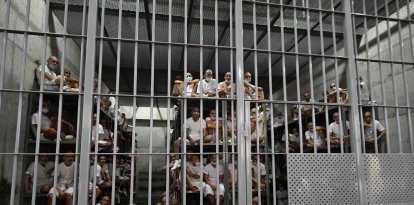Maduro's regime uses asphyxiation, blows and electric shocks to torture teenagers detained after protests in Venezuela
Relatives of eight teenagers detained after the presidential elections denounced that the dictatorial regime is torturing the youths during interrogations.

Nicolas Maduro speaking in Caracas.
Relatives of eight teenagers arbitrarily detained after Venezuela's presidential election, denounced that the youths have been tortured by Nicolás Maduro's regime. According to the mothers and sisters, the minors have been beaten, asphyxiated and subjected to electric shocks during interrogations. These actions were allegedly carried out to force them to confess to crimes or to intimidate them. The families and human rights groups are demanding their release and that these abuses be investigated.
Theany Urbina, mother of 16-year-old Miguel Urbina, reported that her son was detained on August 2 and that, during his arrest, he was tortured with electric shocks. "The children say that (...) they passed current to them," she denounced. In addition, he added that they used a method known as "la capucha de cebollita", which consists of putting a bag with tear gas over the detainee's head to asphyxiate them.
Torture and detention without justification
The eight aforementioned teenagers are detained in the Entidad de Atención Ciudad Caracas, in El Cementerio, under charges of "incitement to hatred," "terrorism" and "qualified theft." The torture allegations also include Diomer Gomez, 17, who was arrested on the same day as Miguel, but at his home, without a warrant. His sister, Dionexis García, reported that he was missing for 12 days before being seen again, and the family still does not know why he is accused of terrorism.
Repression in poor neighborhoods
Repression in popular sectors has not ceased since the elections, with raids and arbitrary detentions. In some cases, teenagers were forced under torture to record videos in which they falsely incriminate themselves. Miguel Urbina's mother explained that her son, who on election day was sick in bed, was arrested on August 2 when he briefly went out to buy a candy bar. "Pitifully he went out on August 2 at 8:00 a.m. to eat a candy bar and they grabbed him. Two policemen arrived, knocked down the candy he was eating, beat him up and took him away," she said.
Dozens of minors remain in custody
According to Gonzalo Himiob, vice-president of the NGO Foro Penal, 58 minors continue to be detained after being arrested in the protests on July 28. Between July 29 and September 9, 142 teenagers were jailed, many charged with serious offenses such as "incitement to hatred," "terrorism," and "obstruction of public roads." Some of these young people, including teenagers with disabilities, did not even participate in the anti-regime demonstrations.
"These [figures] are data that we have to continuously corroborate because there is no official access to information," Himiob denounced, underlining the lack of transparency in the Venezuelan authorities' reports.
Calls for their release
Relatives insist that these young men are not criminals and that their lives have been unjustly interrupted. "They are not criminals; they have dreams and goals," said Diomer Gomez's sister, demanding their release. "They are children still playing hide-and-seek," she added.
This wave of protests and arrests is occurring against the backdrop of a serious political crisis. After the Venezuela's National Electoral Council(CNE) announced without evidence the "victory" of Nicolas Maduro in the presidential elections, the Chavista regime intensified its repression. Since then, more than 2,000 people have been arrested, dozens of activists and political leaders have been kidnapped, and numerous deaths have occurred.
RECOMMENDATION
